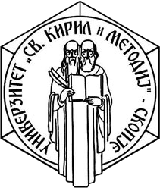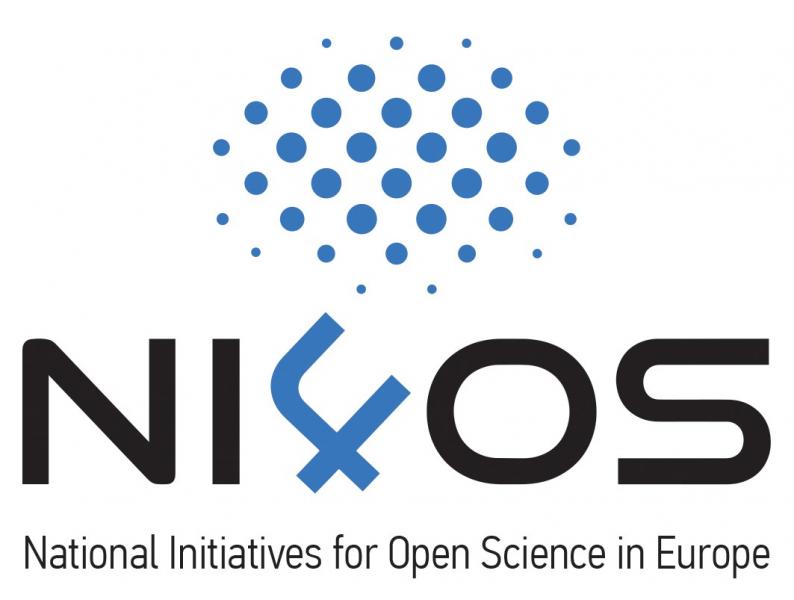Bioinformatics (4+1)
1. General Information
Postgraduate studies in Bioinformatics will enable students to understand, develop and use advanced algorithms and techniques for analyzing, indexing, searching and using data from biological databases, as well as modeling events and processes that occur at the level cell, organ or organism, including the latest developments in the fields of databases, molecular biology, genetics, machine learning and data science.
- Name of the proposer: University "Ss. Cyril and Methodius University in Skopje, Faculty of Information Sciences and Computer Engineering - FINKI
- Name of the study program: Second cycle academic studies in Bioinformatics
- Scientific-research area: technical-technological / natural mathematical
- Field: Computer Science and Informatics / Informatics
- Areas: Artificial Intelligence, Intelligent Systems, Programming Languages and Systems, Databases, Numerical Analysis, Algorithms, Simulation, Information Processing, Data Processing, Other .
- The value of postgraduate studies is 60 ECTS or 120 ECTS credits .
- Duration of studies: 2 or 4 semesters .
- One academic year consists of two semesters lasting 30 weeks (1 semester = 15 weeks).
- In the first and the second semester, subjects are performed, while in the second semester, the final project is additionally prepared, ie. master thesis.
- Admission Requirements : Completed undergraduate studies in Computer or Biological-Medical Sciences with a minimum of 240 or 180 credits. For study directions that carry less than 240 credits, exams offered in the introductory layer are added.
- Introductory layer : Students who have earned less than 240 credits during their studies are offered a set of differential introductory courses. After their successful realization, the student acquires the right to continue with the first semester of postgraduate studies.
- First semester : 2 compulsory courses and 2 electives, one of which may be from the University list.
- Second semester : 1 compulsory and 1 elective, one of which can be from the university list (only if in the first semester the subjects are selected at the Faculty level) and the final project - master's thesis of 18 ECTS
- 1 ECTS credit corresponds to 30 hours of total work engagement
- The number of contact hours is 4
- The academic title or degree obtained upon completion of studies is:
- Master in Information Science and Computer Engineering in Bioinformatics
2. Studies
Table 3: Course structure in IX and X semesters
| РБ | Course | Semester | M / E | Credits |
| 1 | Introduction to Molecular Biology | IX | M | 6 |
| 2 | Basics of Bioinformatics | IX | M | 6 |
| 3 | Selected from Table 4 | IX | E | 6 |
| 4 | Selected from Table 4 | IX | E | 6 |
| 5 | Selected from Table 4 | IX | E | 6 |
| 6 | Advanced Mathematical and Statistical Techniques | X | M | 6 |
| 7 | Selected from Table 4 | X | E | 6 |
| 8 | Master Thesis | X | M | 18 |
Table 4 shows the elective courses from the Bioinformatics study program. In addition to these courses, the student can choose from all elective courses defined for all study programs of the second cycle that are serviced by the faculty. One elective course can be chosen from the university list of free elective courses. Table 4: Electives
Table 4: Electives
| РБ | Course | Semester | Credits | Fund hours |
| 1 | Structural Bioinformatics and Proteomics | IX | 6 | 4 + 0 + 0 + 0 |
| 2 | Scientific computing in bioinformatics | IX | 6 | 4 + 0 + 0 + 0 |
| 3 | Wavelets in Numerical Simulations | IX | 6 | 4 + 0 + 0 + 0 |
| 4 | Information processing in biological systems | IX | 6 | 4 + 0 + 0 + 0 |
| 5 | Introduction to Computational Neuroscience | IX | 6 | 4 + 0 + 0 + 0 |
| 6 | Introduction to genetic Engineering | X | 6 | 4 + 0 + 0 + 0 |
| 7 | Mathematical Biology | X | 6 | 4 + 0 + 0 + 0 |
| 8 | Biological Sequence Analysis | X | 6 | 4 + 0 + 0 + 0 |
The student can choose a subject from the list of offered elective courses from all study programs of the second cycle of studies. The list of offered electives can be found on this link .


